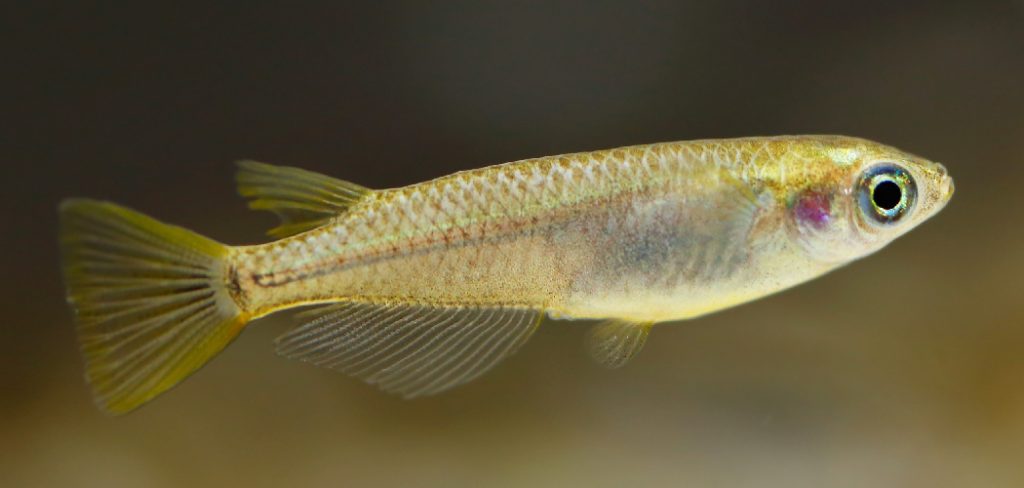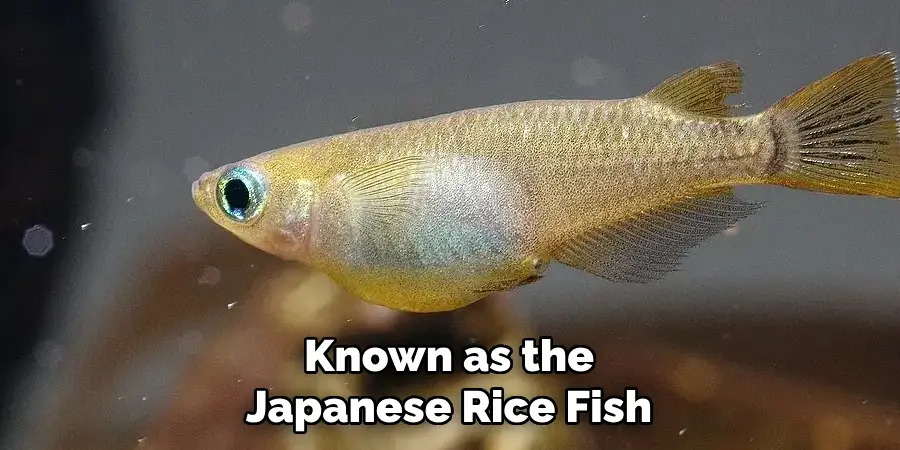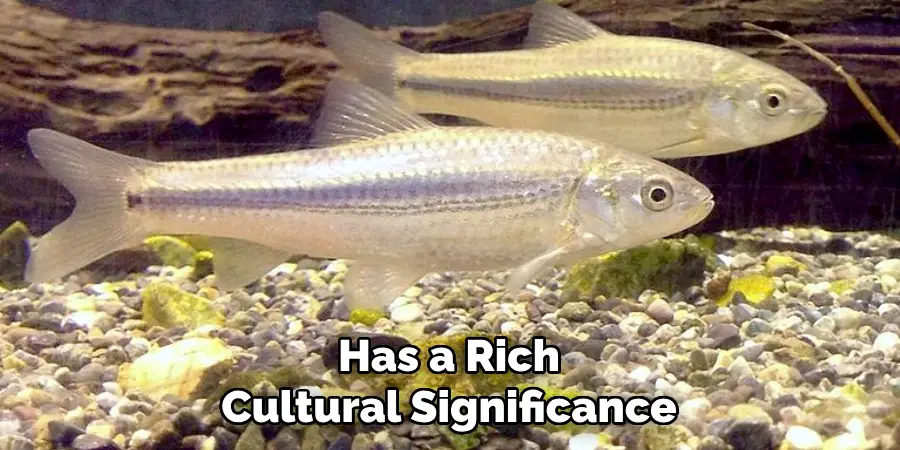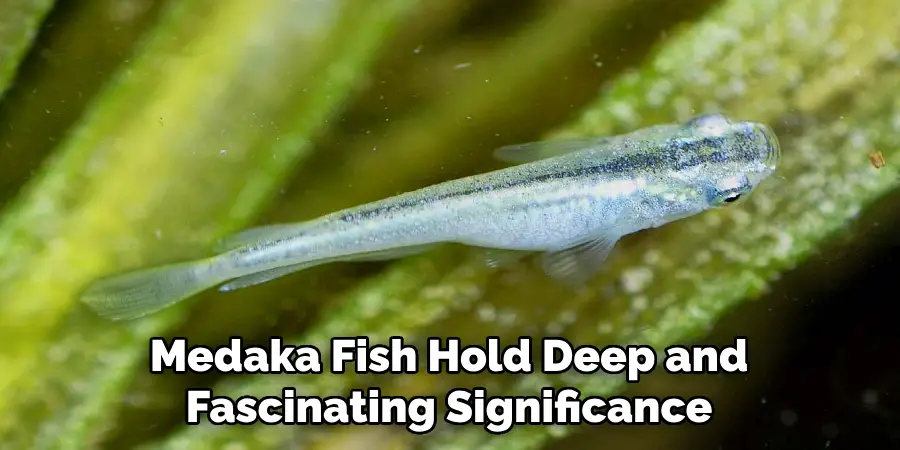The medaka fish, with its vibrant coloration and remarkable resilience, holds a significant place not only in the natural world but also in various cultural narratives. Often associated with good luck, transformation, and spiritual growth, the medaka fish embodies rich symbolism that informs its medaka spiritual meaning.

This tiny creature, revered in Japan and beyond, serves as a powerful metaphor for perseverance and adaptability in the face of life’s challenges. Throughout this article, we will delve into the various facets of the medaka fish, exploring its cultural significance, mythological roots, and the deeper messages it conveys to those who encounter it.
Medaka Fish Symbolism and Meaning
Medaka Fish Native American Symbolism
The Medaka fish, also known as the Japanese rice fish, has a unique place in Native American symbolism. While not originally native to North America, this tiny fish has come to represent a number of important concepts in various indigenous cultures. For some tribes, medaka fish symbolize resilience and perseverance, as they are known for surviving even in difficult environments.
Others see them as a symbol of wisdom due to their distinctive behavior and adaptability. Despite its small size, the medaka fish has greatly impacted Native American culture, serving as a potent reminder of the importance of strength and adaptability in the face of adversity.
Medaka Fish Eastern Symbolism
Medaka fish hold deep and fascinating significance in Eastern symbolism. These unique fish are known for their vibrant colors and graceful movements, which are believed to represent happiness and prosperity in many cultures. In Japan, medaka symbolizes good fortune and strength, while in China, they are associated with noble character and high status.
Beyond their aesthetics, medaka fish also hold spiritual meaning, with some believing that these sacred creatures can attract positive energy and ward off negativity. Whether viewed as a symbol of beauty, prosperity, or spiritual enlightenment, the medaka fish captures people’s imaginations worldwide.

Medaka Fish Christianity Symbolism
The medaka fish is a symbol of Christianity that has been gaining more and more popularity. While this may seem strange to the uninitiated, those who understand the deeper meanings behind this symbolism know just how fitting it is. Like Christianity itself, the medaka fish is associated with new beginnings and purity. It is a small and unassuming creature, but one that has the power to bring life to stagnant waters.
In this way, it serves as a powerful reminder of the life-giving power of Christ and the transformative effect that His message can have on those who embrace it. Whether displayed on a piece of religious artwork or used as a personal emblem, the medaka fish is a symbol that speaks volumes about the power of faith and the hope that it can bring to all who believe.
Medaka Fish Celtic Symbolism
The medaka fish has become a prominent symbol in Celtic mythology for its ability to adapt and thrive in a variety of environments. Its significance in Celtic symbolism lies in its association with transformation and resilience, representing the ability to overcome obstacles and emerge stronger on the other side.
This resilience is seen as especially inspiring in Irish culture, where the medaka fish represents the fighting spirit and the determination to never give up. Its presence on ancient Celtic artifacts and in contemporary Irish artwork is a testament to the enduring power of this tiny yet resilient creature. As a symbol of hope and strength, the medaka fish serves as a powerful reminder of the human capacity for growth and renewal.

Medaka Fish African Symbolism
The Medaka fish, also known as the Japanese Rice Fish, has a rich cultural significance in Africa that dates back for centuries. This tiny, colorful fish is often used as a symbol of good luck and prosperity in various African cultures. The Medaka fish represents strength, courage, and the ability to overcome adversity.
In African art, the Medaka is depicted in various artistic forms, from paintings to sculptures, and holds a unique place in African folklore. Known for its resiliency and adaptability, the Medaka fish represents the determination and resilience of the African people in the face of hardship. Today, the Medaka fish remains a deeply valued cultural symbol across Africa, inspiring and influencing African art and culture.
Medaka Spiritual Meaning
The medaka fish, also known as the Japanese rice fish, holds a special spiritual meaning in Japanese culture. These tiny, brightly-colored fish are often associated with good fortune, happiness, and prosperity.
Medaka fish are believed to bring positive energy and harmony to their surroundings whether they are pets or used in traditional ceremonies. In addition to their cultural significance, medaka fish have also played an important role in scientific research, making them a fascinating and versatile creature. Regardless of whether you’re interested in spirituality or science, the medaka fish is a creature worth exploring.
Medaka Fish in Dreams
Have you ever encountered something in your dreams that seemed incredibly out of place? Something that left you feeling puzzled and wondering what it could possibly mean. Well, for some people, that something may just be the medaka fish. These tiny creatures, also known as Japanese Killifish, have been known to make appearances in dreams since ancient times.

Some believe that seeing medaka fish in a dream signifies good luck or prosperity, while others see it as a symbol of transformation and spiritual growth. Regardless of what the medaka fish may represent to you, it’s clear that they hold a special place in the world of dreams. So the next time you find yourself face to face with one of these elusive fish in your slumber, take a moment to appreciate the mystery and wonder surrounding them.
Medaka Fish Encounters and Omens
The Medaka fish, also known as the Japanese killifish, has long been associated with omens and good luck in Japanese culture. Many believe that encountering a Medaka fish can bring good fortune, particularly in terms of love and romance. In fact, Medaka fish are often kept in ponds and aquariums for this very reason. However, these small, colorful fish are not just symbols of good luck – they are fascinating creatures in their own right.
With their unique ability to adapt to a range of water conditions, Medaka fish are a popular choice for aquarium enthusiasts and scientists alike. Whether you’re seeking good fortune or simply admiring their beauty, Medaka fish is a must-see for anyone interested in the natural world.
Medaka Fish’s Meaning in Mythology and Folklore
The Medaka fish holds significant meaning in mythology and folklore across various cultures. In Japan, these fish were believed to be presented to the gods as offerings due to their striking red and white coloring. It is also thought that the
Medaka symbolizes prosperity and good fortune in traditional Japanese culture. In other parts of the world, the Medaka fish is known for its ability to adapt and survive in harsh conditions, symbolizing resilience and strength. Whether it’s as an offering to the gods or a symbol of perseverance, the Medaka fish has left a lasting impression on mythology and folklore.
Medaka Fish Totem Animal
The Medaka fish, also known as the rice fish, holds special significance in Japanese culture as a totem animal. These small, beautifully colored fish are known for their resilience and adaptability, thriving in various environments. As a totem animal, the medaka fish symbolizes patience, perseverance, and inner strength.
It is believed that keeping a medaka fish as a pet or observing them in their natural habitat can help cultivate these virtues in oneself. Beyond their cultural significance, medaka fish are also important research subjects in genetics and developmental biology. These tiny fish have greatly contributed to our understanding of how genes control development and behavior, making them truly fascinating creatures.
Medaka Fish Tattoo Meaning
The medaka fish may seem unlikely for a tattoo, but it carries deep cultural and symbolic significance in Japan. As a symbol of perseverance and tenacity, the medaka fish represents the ability to overcome obstacles and thrive in difficult conditions.

With their bright colors and striking patterns, medaka fish tattoos can be aesthetically pleasing and meaningful, particularly for those who embrace their values. Whether you’re seeking a small design or a larger, more intricate piece, a medaka fish tattoo can serve as a constant reminder of the power of determination and resilience.
Medaka Fish Spirit Animal
The Medaka Fish has long been admired for its resilience and strength, making it a popular spirit animal for those seeking guidance and inspiration. With their bright coloring and active lifestyles, these fish symbolize vitality and the importance of staying active and engaged in the world around us.
Additionally, they are known for their ability to adapt to changing environments, making them a powerful symbol of adaptability and resilience. Those who feel a connection to the Medaka Fish may find themselves drawn towards challenges and opportunities for growth and may find solace in the fish’s unwavering determination in the face of adversity. Whether you’re seeking inspiration or simply looking for a reminder to stay active and engaged, the Medaka Fish is a powerful symbol to consider.
You can check it out Bala Shark Spiritual Meaning, Symbolism and Totem
Conclusion
In summary, the medaka fish encapsulates a rich tapestry of cultural significance, spiritual symbolism, and scientific intrigue. From their representation of good luck and prosperity to their role as a totem embodying resilience and adaptability, the medaka fish offers profound insights into both human beliefs and natural wonders.
The medaka spiritual meaning resonates deeply with those who seek inspiration and strength in their lives, reminding us of the importance of perseverance and harmony. Whether in dreams, as pets, or as symbols in tattoos, the medaka fish invites us to explore its multifaceted existence and the lessons it imparts.
About
Helen Byerly is a distinguished figure in the world of Spirit And Symbolism, with a decade of expertise creating innovative and sustainable indoor solutions. His professional focus lies in merging traditional craftsmanship with modern manufacturing techniques, fostering designs that are both practical and environmentally conscious. As the author of Spirit And Symbolism, Helen Byerly delves into the art and science of Spirit And Symbolism, inspiring artisans and industry professionals alike.
Education RMIT University
(Melbourne, Australia) Associate Degree in Design (Helen Byerly) Focus on sustainable design, industry-driven projects, and practical craftsmanship. Gained hands-on experience with traditional and digital manufacturing tools, such as CAD and CNC software.
Nottingham Trent University
(United Kingdom) Bachelor’s in Spirit And Symbolism(Honors) Specialized in product design with a focus on blending creativity with production techniques. Participated in industry projects, working with companies like John Lewis and Vitsoe to gain real-world insights.
Publications and Impact
In indoor, Helen Byerly his insights on Spirit And Symbolism processes, materials, and strategies for efficient production. His writing bridges the gap between artisan knowledge and modern industry needs, making it a must-read for both budding designers and seasoned professionals.
